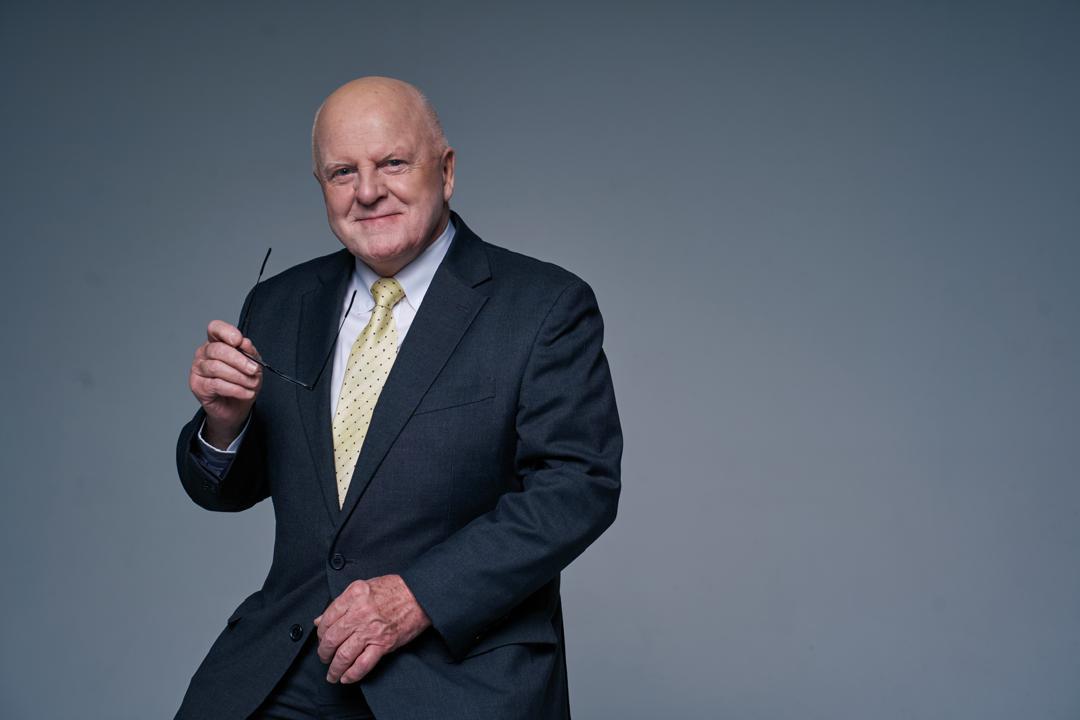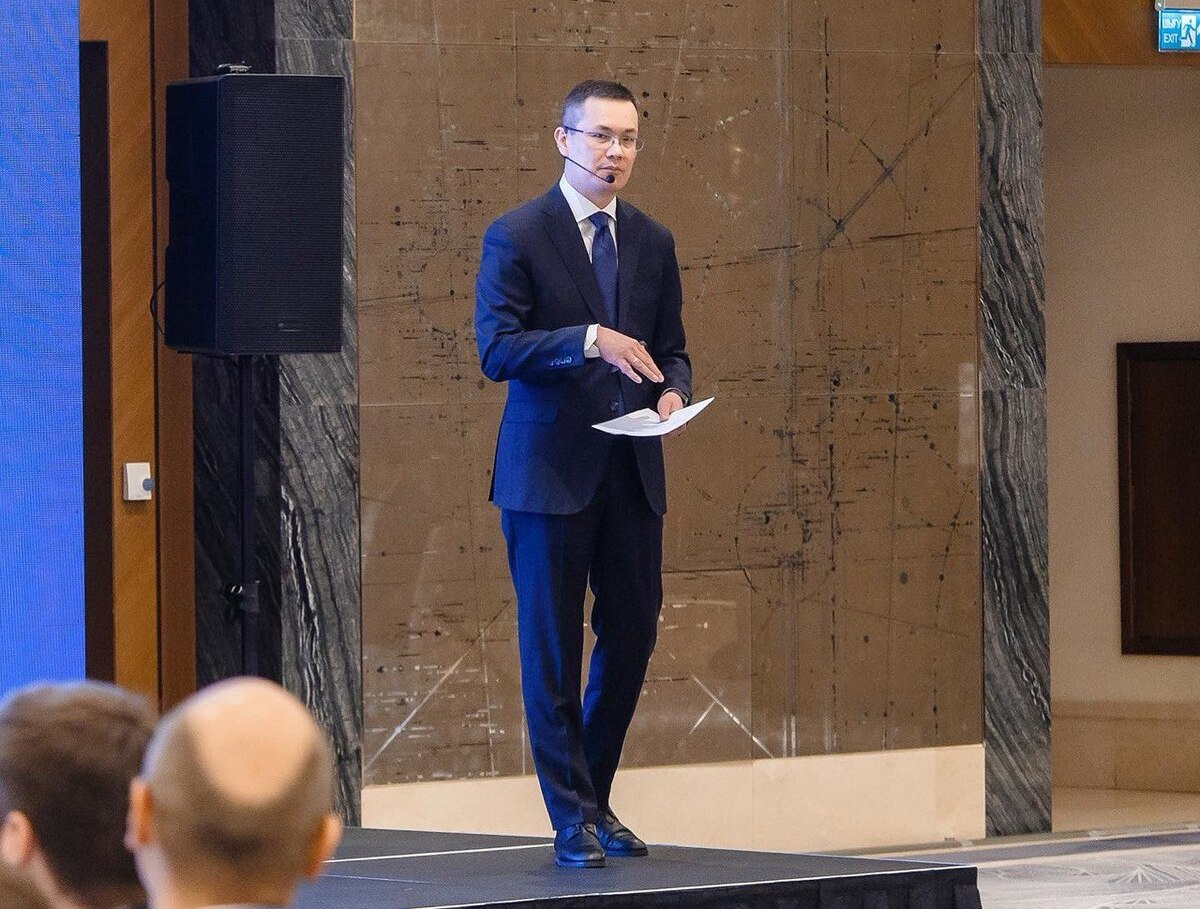British Educational Institutions Strengthen Presence in Kazakhstan

ASTANA – The British educational institutions Ardingly College and Coventry University are expanding their presence in Kazakhstan, fostering bilateral cooperation and offering educational opportunities for Kazakh citizens. Primus Education has played a key role in these projects, selecting partners that align with their mission.
We spoke with Primus Education president Alister Bartholomew and president of Coventry University Kazakhstan Miras Daulenov to learn more about the schools and trends in education.
“I think for Kazakh students, these initiatives give them wings to fly. It gives them new opportunities and helps them develop an international perspective. Having these opportunities in the country instead of sending children abroad allows exposure to take place much earlier, giving them a global perspective as well,” said Bartholomew.
The school’s global focus
Discussing Ardingly College, Bartholomew highlighted the school’s focus on preparing students for a global future.
“We were very careful in choosing our partner. Ardingly’s lovely philosophy for children is very applicable to today’s world. We believe these links will be ongoing and will develop,” he said.

Alister Bartholomew, President of Primus Education. Photo credit: press service of the Ardingly Astana
Bartholomew outlined plans for cultural exchange programs, including summer schools and online interactions between classes in both countries.
“We will have online connections where classes interact, and I know the head of the prep school is looking forward to learning more about Kazakhstan’s rich history and culture. Over my 20 years and multiple visits to your country, I have discovered a very rich and special history filled with key figures, including philosophers and poets. This is a marvelous opportunity for English children to experience and share this culture,” he said.
Looking ahead, Bartholomew discussed plans for sporting and cultural tours, aiming to foster fair play and broad educational experiences.
Preparing students for the future
Bartholomew stressed the importance of preparing students for the future, focusing on personalized education that encourages global thinking, social interaction, and entrepreneurship.
“We want the children to express themselves, be open and articulate about their feelings,” he said. Schools teach several qualities that allow students to enrich themselves with knowledge, enjoy learning, take care of others and themselves, make informed requests, and evaluate information critically.
“The one thing that schools can give students, regardless of parental background or socioeconomic status, is confidence. When children come into schools like ours, the curriculum is so broad, with many extracurricular activities and lifestyle experiences, including sports. We want to try and give the children that confidence,” he said.
Another vital lesson schools can impart is kindness—teaching students how to be kind, humble in the right situations, confident, and tolerant of others.
“It’s important for students to know how to handle themselves in social situations, understand when to speak up and when to be reserved. We have designated lessons in our curriculum to teach these skills, and I believe the Kazakh curriculum is also developing in this direction,” he said.
He also mentioned the growing awareness among modern parents about educational choices.
“Parents are now more discerning and selective, seeking the best for their children. This reflects the maturity of Kazakhstan’s educational system. We must be mindful of this and ensure we balance what we provide. Parents today are much more knowledgeable and ambitious for their children, and rightfully so,” Bartholomew said.
The school also plans to open a boarding facility for 200 students, recognizing both the responsibility and privilege of offering such an opportunity. This initiative aims to offer neighboring countries access to a British curriculum, further establishing Kazakhstan as a leading educational hub.
The university’s commitment to Kazakhstan’s talent development
Coventry University is also opening its doors this year, offering MBA Global Business and Bachelor’s degree programs, with graduates receiving British diplomas. The university will cover several disciplines such as business, human resource management, pedagogy, computer science, and digital marketing.

Miras Daulenov, President of Coventry University. Photo credit: the university’s press service
Daulenov described the university’s strategy as creating “blue oceans,” or exploring new market areas.
“We are identifying new niches and establishing a higher education system using Coventry’s expertise, particularly in fields not yet prevalent in Kazakhstan. For instance, Artificial Intelligence (AI) is becoming a crucial field. Booking.com co-founder Jeff Hoffman recently highlighted that ‘AI will change any profession.’ IBM’s report indicates that those who know how to work with AI will be in demand,” said Daulenov.
To address this, the university will offer a Computer Science course with a foundation in academic English and modules focused on AI. The course will be taught by specialists and include significant computing resources.
“In Kazakhstan, we currently have access to less than 5% of global AI technologies. Developing this area and gaining knowledge from top experts is crucial,” said Daulenov.
Why Coventry University?
Daulenov emphasized Coventry’s high international ranking and the importance of specific program rankings.
“Ten of Coventry’s programs made the Guardian’s top list last year, and in 2023, it received a gold medal for teaching excellence. The university’s approach is research-based education rather than textbook learning. Today, education is not just about transferring knowledge; it’s about changing the way of thinking,” he said.
He stressed that in an AI-dominated world, students must use AI-processed information effectively. Fundamental knowledge creates the foundation, but students must critically evaluate and use information. Critical thinking is closely tied to logical thinking, enabling students to analyze, synthesize, and draw conclusions based on solid evidence.
“Higher education primarily aims to develop a different level and method of thinking. Coventry University emphasizes applied education through case studies and real-world examples, allowing students to develop projects they can present to the market alongside their diploma,” he said.
Trends and future directions
With globalization influencing all sectors, including education, Daulenov pointed out that 65,000 young Kazakhs have sought higher education abroad in the past five years.
“If we can provide quality education in Kazakhstan and make it more accessible, we should. This accessibility helps talented individuals develop and prepare for global competitiveness,” said Daulenov.
He mentioned that before the pandemic, an American magazine predicted that higher education would become more exclusive while online education would be cheaper but less valued. However, online education has significantly influenced learning dynamics.
“Quality education is never cheap, and recent reports show that Kazakhs are increasingly investing in education. We have 600,000 schools in Kazakhstan, and thanks to teacher status laws, teachers are well-compensated. Many regions are economically successful, and teachers are among the top employed in the country. And speaking about the cost of education, it will grow worldwide,” said Daulenov.
He also noted a growing demand for short-term programs aimed at quickly producing specialists. Despite this trend, he stressed that fundamental thinking requires time to develop, similar to building with bricks.
“The World Economic Forum regularly updates its list of essential future skills. With advancements in AI, active learning, creativity, adaptability, and technological literacy are increasingly important. Yet, 60% of companies worldwide report skill gaps in their local labor markets, with only 39% expecting to find specialists with the required skills,” he said.
He pointed out a trend in the United States where employers are becoming less inclined to hire individuals with short-term certificates who lack a higher education degree, as these workers tend to change jobs more frequently.
Opportunities for teachers
Daulenov highlighted the International Postgraduate Certificate in Education (iPGCE) program, developed by Coventry’s National Institute for Teaching Excellence (NITE) and accredited by the UK’s Department for Education. This program offers current teachers a pathway to international standards and provides a lateral entry for those without a teaching background but who wish to teach.
“Kazakhstan has strong pedagogical universities, but an oversaturation of education grants leads some to pursue teaching solely for the free education, rather than a genuine commitment to the profession. As a result, international schools often recruit teachers from abroad. The iPGCE program aims to address this by training existing teachers to meet international standards,” said Daulenov.
The country’s private schools are investing in education through public-private partnerships. This year, approximately 190,000 students graduated from high school, and some of them will continue their education at higher institutions. Yet, with 400,000 first-graders expected to start school in September, there is a significant demand for quality teachers that the state and investors are struggling to meet. The increasing number of international and private schools heightens the need for skilled teaching staff.
“With 7,000 schools across Kazakhstan and 170 new schools planned in Astana alone, there is a significant need for teachers. In some regions, small schools require teachers to cover multiple subjects, which can affect quality. The iPGCE program has great potential to enhance education quality and should be further developed,” he concluded.

